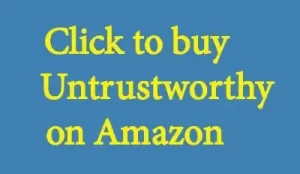Let’s Look at Scavenger Hunt at Lanterman’s Mill
Would you go on a scavenger hunt at Lanterman’s Mill? And where the heck is Lanterman’s Mill, anyway? Not to worry, dear reader. I will reveal all.
I started this story during the third quarter of 2021. But I did not finish it until the first quarter of 2025. Or maybe early in the second quarter of 2025.
Background for Scavenger Hunt at Lanterman’s Mill
The original prompt word was Youngstown. I’ve been to Ohio before, but never actually to Youngstown. And so, I had to open up Google maps and try to figure out what would be interesting enough in the town to write about.
Also, I love cryptic crosswords, so the idea of making a cryptic clue was a lot of fun! Did you guess what ‘shift maternalism, almost nil’ means (see below)?
Plot
It’s a cool ten million dollars at stake when Liz and her family go on a scavenger hunt sponsored by a hardware store. And when Liz finds… something, tempers start to flare.
Characters
The characters are Liz Crosby (the narrator), her brother in law Chuck Rafferty, her nephew Wesley, Chuck’s pal Jerry Nance, and Jerry’s second wife, Lisa Foster Nance. Liz mentions her sister Natalie and infant niece Deirdre, but they aren’t along for the scavenger hunt.
There’s also Mike Rawlings, the CEO of the hardware store. And Penny Delgado, from Youngstown Action News.
Memorable Quotes
This is the stupidest scavenger hunt I’ve ever been on. And I’ve been on quite a few.
It’s not the old town
Water takes a trip
Shift maternalism, almost nil
The bridge wears a hat
The gorges are gorgeous
I figured out it was Youngstown, Ohio. But the gorge clue made the rest of my team think Ithaca. So, they’re there, and I’m here.
But I have no idea about the water. I guess it means a creek or a river or stream. If it’s a river, then it’s the Mahoning. And after that, I’m stumped—100%, totally, grade A stumped. This sure is a lot of work for $10 million.
Rating
The story has a K rating.
Takeaways from this Scavenger Hunt
While everyone else is going nuts in one way or another, Liz manages to keep her cool. But maybe a little unnaturally. If I ever really revisit this one, I may add an instance or two where even Liz becomes unraveled. Hmm.
Want More of my Short Stories and Novellas?
If this story resonates with you, then I hope you will check out some of my other blog posts about my shorter works.
Short Stories
Finally, for a complete list of my shorter works, please be sure to check out the Hub Page—Short Stories.
Leave a Comment





You must be logged in to post a comment.